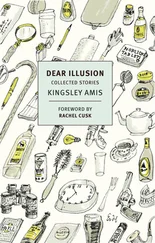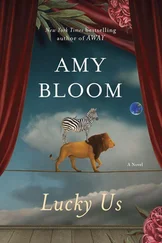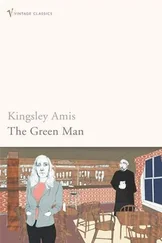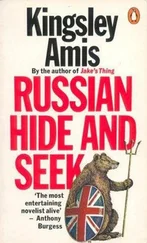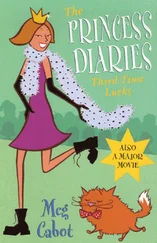Those questions… Although he wasn't allowed to smoke another cigarette until five o'clock, Dixon lit one now as he remembered the first series, propounded six months or more ago; about the beginning of last December it had been, seven or eight weeks after he took up his appointment. 'Do you like coming to see me?' was the first he could recall, and it had been easy as well as truthful to answer 'Yes'. Then there'd been ones like 'Do you think we get on well together?' and 'Am I the only girl you know in this place?' and once, when he'd asked her out for the third consecutive evening, 'Are we going to go on seeing so much of each other?' His first qualms had dated from then, but before that and for some time after he'd thought how much simpler this kind of honesty and straightforwardness made the awful business of getting on with women. And the same had seemed true of the confessions: ' I do enjoy being with you',' I don't get on with men as a rule', 'Don't laugh at me if I say I think the Board did a better job than they knew when they appointed you*. He hadn't wanted to laugh then, nor did he want to now. What would she be wearing this evening? He could just about bring himself to praise anything but the green Paisley frock in combination with the low-heeled, quasi-velvet shoes.
Where was Welch? The old man was well known for an incurable evader.
Dixon flung himself up the staircase, past the memorial plaques, and along the deserted corridors, but the familiar low-ceilinged room was empty. He clattered down the back stairs, an escape-route he often used himself, and into the Staff Cloakroom. Welch was in there, stooped secretively over a wash-basin. 'Ah, just caught you,' Dixon said convivi-ally. "Thought you'd gone without me. Professor,' he added, nearly too late.
The other raised his narrow face, distorted with wonder. 'Gone?' he asked. 'You're ii 'You're taking me home for tea,' Dixon enunciated. 'We arranged it on Monday, at coffee-time, in the Common Room.' He caught sight of his own face in the wall-mirror and was surprised to see that it wore an expression of eager friendliness.
Welch had been flicking water from his hands, a movement he now arrested. He looked like an African savage being shown a simple conjuring trick. He said: 'Coffee-time?'
'Yes, on Monday,' Dixon answered him, putting his hands into his pockets and bunching the fists.
'Oh,' Welch said, and looked at Dixon for the first time. ' Oh. Did we say this afternoon?' He turned aside to a streaked roller-towel and began a slow drying of his hands, watching Dixon alertly.
'That's right, Professor. Hope it's still convenient.'
'Oh, it's convenient enough,' Welch said in an unnaturally quiet voice.
'Good,' Dixon said, 'I'm looking forward to it,' and took his dirty old raincoat from a hook in the wall.
Welch's manner was still a little veiled, but he was obviously recovering quickly, and managed quite soon to pick up his ' bag' and put his fawn fishing-hat on his head.' We'll go down in my car,' he offered.
'That'll be nice.'
Outside the building they turned along a gravel drive and went up to the car where it was parked with a few others. Dixon stared about him while Welch looked thoroughly for his keys. An ill-kept lawn ran down in front of them to a row of amputated railings, beyond which was College Road and the town cemetery, a conjunction responsible for some popular local jokes. Lecturers were fond of lauding to their students the comparative receptivity to facts of' the Honours class over the road', while the parallel between the occupations of graveyard attendant and custodian of learning was one which often suggested itself to others besides the students.
As Dixon watched, a bus passed slowly up the hill in the mild May sunshine, bound for the small town where the Welches lived. Dixon betted himself it would be there before them. A roaring voice began to sing behind one of the windows above his head; it sounded like, and presumably might even be, Barclay, the Professor of Music.
A minute later Dixon was sitting listening to a sound like the ringing of a cracked door-bell as Welch pulled at the starter. This died away into a treble humming that seemed to involve every component of the car.
Welch tried again; this time the effect was of beer-bottles jerkily belaboured. Before Dixon could do more than close his eyes he was pressed firmly back against the seat, and his cigarette, still burning, was cuffed out of his hand into some interstice of the floor. With a tearing of gravel under the wheels the car burst from a standstill towards the grass verge, which Welch ran over briefly before turning down the drive. They moved towards the road at walking pace, the engine maintaining a loud lowing sound which caused a late group of students, most of them wearing the yellow and green College scarf, to stare after them from the small covered-in space beside the lodge where sports notices were posted.
They climbed College Road, holding to the middle of the highway. The unavailing hoots of a lorry behind them made Dixon look furtively at Welch, whose face, he saw with passion, held an expression of calm assurance, like an old quartermaster's in rough weather. Dixon shut his eyes again. He was hoping that when Welch had made the second of the two maladroit gear-changes which lay ahead of him, the conversation would turn in some other direction than the academic. He even thought he'd rather hear some more about music or the doings of Welch's sons, the effeminate writing Michel and the bearded pacifist painting Bertrand whom Margaret had described to him. But whatever the subject for discussion might be, Dixon knew that before the journey ended he'd find his face becoming creased and flabby, like an old bag, with the strain of making it smile and show interest and speak its few permitted words, of steering it between a collapse into helpless fatigue and a tautening with anarchic fury.
'Oh… uh… Dixon.'
Dixon opened his eyes, doing everything possible with the side of his face away from Welch, everything which might help to relieve his feelings in advance. 'Yes, Professor?'
'I was wondering about that article of yours.'
'Oh yes. I don't…'
'Have you heard from Partington yet?'
'Well yes, actually I sent it to him first of all, if you remember, and he said the pressure of other stuff was…'
'What?'
Dixon had lowered his voice below the medium shout required by the noise of the car, in an attempt to half-conceal from Welch Welch's own lapse of memory, and so protect himself. Now he had to bawl out: 'I told you he said he couldn't find room for it.'
'Oh, couldn't he? Couldn't he? Well, of course they do get a lot of the most… a most terrific volume of stuff sent to them, you know. Still, I suppose if anything really took their eye, then they… they… Have you sent it off to anyone else?'
' Yes, that Caton chap who advertised in the /T.L.S. /a couple of months ago. Starting up a new historical review with an international bias, or something. I thought I'd get in straight away. After all, a new journal can't very well be bunged up as far ahead as all the ones I've…'
'Ah yes, a new journal might be worth trying. There was one advertised in the /Times Literary Supplement /a little while ago. Paton or some such name the editor fellow was called. You might have a go at him, now that it doesn't seem as if any of the more established reviews have got room for your… effort. Let's see now; what's the exact title you've given it?'
Dixon looked out of the window at the fields wheeling past, bright green after a wet April. It wasn't the double-exposure effect of the last half-minute's talk that had dumbfounded him, for such incidents formed the staple material of Welch colloquies; it was the prospect of reciting the title of the article he'd written. It was a perfect title, in that it crystallized the article's niggling mindlessness, its funereal parade of yawn-enforcing facts, the pseudo-light it threw upon non-problems.
Читать дальше

